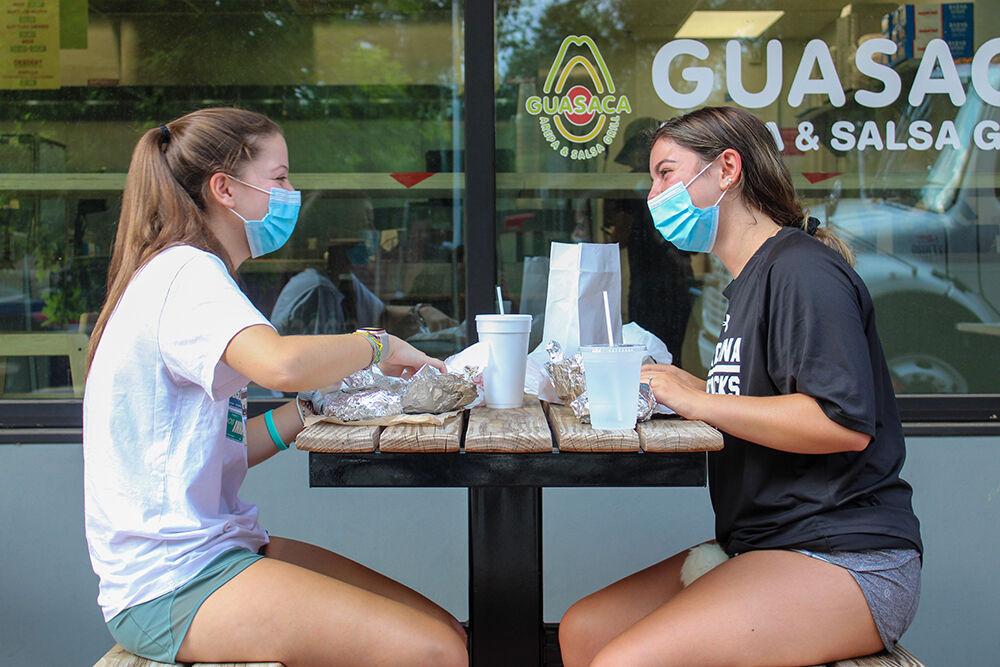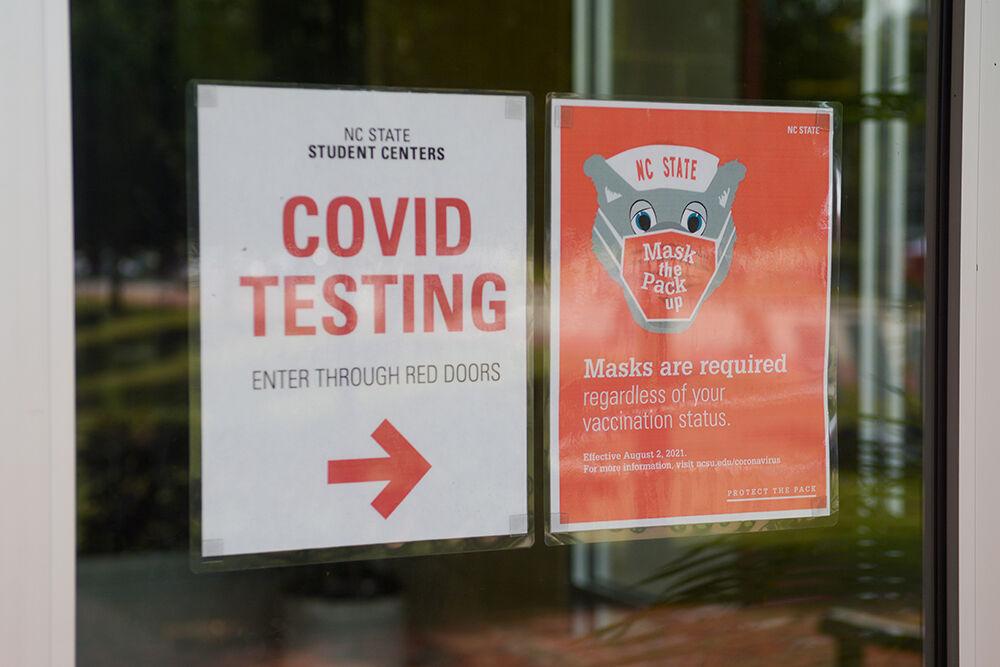Local restaurants have been fighting to regather, adapt and survive as a reaction to restrictions put in place by Gov. Roy Cooper in response to COVID-19. Restaurants on Hillsborough Street are no exception. Now, as students return to campus and stay-at-home restrictions continue to relax, restaurant owners are finding new ways to cut costs and make customers safer.
According to Camilla Fernandez, cashier and family inheritor of Guasaca South American Grill, the past five months of quarantine consisted of stress and uncertainty, with Guasaca closing for two weeks earlier this year. Fernandez said jobs at Guasaca are the main source of income for most of their employees, which made letting go of some of their nonessential employees challenging.
Fernandez said government aid was a key component in the decision to reopen. With services such as the Payroll Protection Program, Guasaca was able to retain employees through government-funded salary raises over the course of two months.
Roger Pelayo, owner of Umami Asian Bistro, said his restaurant was forced to close for the summer due to the high overhead costs of the building. He said he was put in a very difficult position when choosing which employees to keep and which to let go.
“The first two weeks after the shut down, I feel like I lost everything,” Pelayo said. “I remember sitting down with my staff, some of them having worked with me for almost 18 years, offering to help them apply for unemployment.”
Pelayo said Umami’s situation became even more uncomfortable when he realized the amount of money he was paying his staff was less than the unemployment checks his former employees were receiving.
Despite the major setbacks, Pelayo said he managed to find new ways to keep people employed and keep his restaurant afloat. After losing all of his corporate catering accounts with companies such as IBM, Umami began serving from a food truck to supplement income.
In order to make customers feel safe and to cut costs amidst financial stress, restaurants, including Guasaca and Umami, that are now open to students and the public, have made a number of changes.
Guasaca has made it a daily procedure to take the temperature of every employee clocking in for work. If a restaurant suspects an employee has contracted the virus, the whole staff is required to get tested before reopening. Fernandez said this happened at one of their locations, and despite the negative COVID-19 test results, they still shut down the restaurant for a week. In addition, all employees are required to wear masks.
“I think people are finally starting to recognize the seriousness,” Fernadez said. “Everyone’s starting to do their part in stopping this virus.”
According to Pelayo, Umami has found ways to keep customers safe while also cutting costs by transitioning to single-serve packaging to reduce the risk of infections. However, Pelayo said, if customers are paying $20-30 a meal, they are expecting porcelain plates or something nicer.
“We’ve ordered new disposable bento boxes for our meals,” Pelayo said. “They look nice, and they aren’t styrofoam. Hopefully customers can accept it.”
In order to help customers feel comfortable, Pelayo said there are plans to open the anterior windows of Umami to allow fresh air in and make customers feel like they are sitting outside.
Pelayo said he understands students don’t have big budgets, and he’s completely modified his menu to make Umami’s food more affordable. Gusasaca continues to abide by new safety precautions, while still keeping the lights on.
“Acknowledging the things I still had in the midst of this pandemic helped me come to terms with the situation,” Fernadez said. “It taught me to appreciate what we still have.”
For more information on Umami Asian Bistro or Guasaca South American Grill or to view their menus, visit the restaurants’ websites.


















